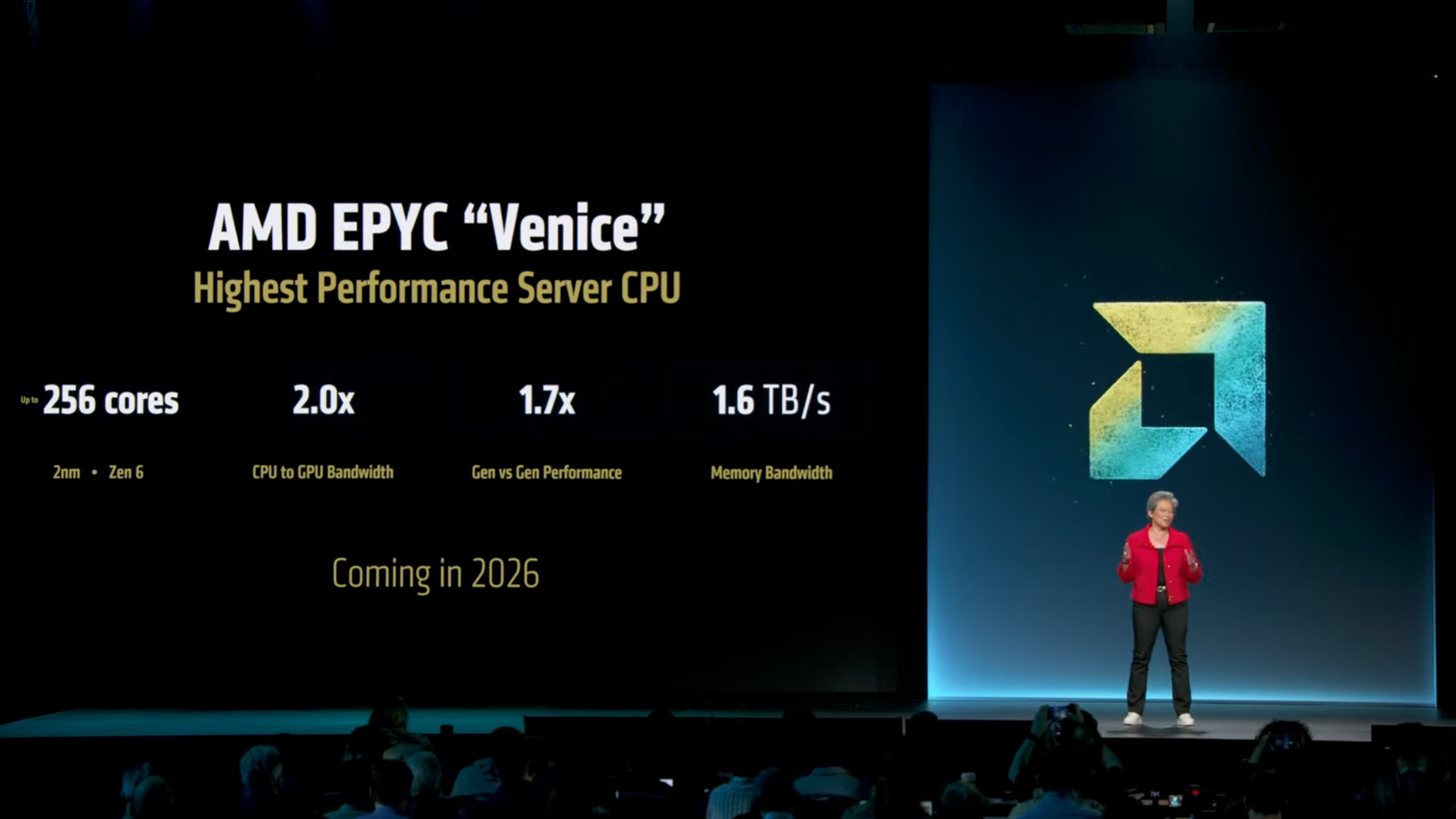AMD on Thursday revealed some of the first technical details about its next-generation Zen 6-based EPYC 'Venice' processor at its Advancing AI event. The company disclosed that the new server CPU will feature up to 256 cores, which increases the number of cores from the current generation EPYC 'Turin' processor by 33%. But the new microarchitecture and the increased number of cores will not be the only innovation that AMD's 2026 data center CPU will bring.
AMD says by packing up to 256 next-generation high-performance Zen 6 cores, the upcoming 6th Generation EPYC 'Venice' CPU will increase performance compared to the existing 5th Generation EPYC 'Turin' 9005-series processor by up to 70%, though the company refrained from elaborating exact workloads it used for comparison.
Perhaps more importantly, the new EPYC 'Venice' processor will more than double per-socket memory bandwidth to 1.6 TB/s (up from 614 GB/s in case of the company's existing CPUs) to keep those high-performance Zen 6 cores fed with data all the time. AMD did not disclose how it plans to achieve the 1.6 TB/s bandwidth, though it is reasonable to assume that the new EPYC ‘Venice’ CPUS will support advanced memory modules like like MR-DIMM and MCR-DIMM.
In addition, AMD's 6th Generation EPYC 'Venice' CPU will also double CPU-to-GPU bandwidth, which most likely means that this processor and the company's next-generation Instinct MI400X-series GPUs will use a PCIe 6.0 interface for communication. That would which mean AMD will be able to transfer up to 128 GB (not counting encoding overhead) of data per second in each direction. And with 128 PCIe lanes, the total amount of data that can be moved is likely much higher.
"Venice extends our leadership across every dimension that matters in the data center," said Lisa Su, chief executive officer of AMD. "More performance, better efficiency, and outstanding total cost of ownership. It is built on TSMC 2nm process technology and features up to 256 high performance Zen 6 cores. It delivers 70% more compute performance than our current generation EPYC 'Turin' CPU and and to really keep feeding [the Instinct MI400X accelerators] with data at full speed, at even at rack scale, we have doubled both the GPU and the memory bandwidth and optimized Venice to run at higher speeds. […] We just got 'Venice' back in the labs and it is looking fantastic."
AMD's 6th Generation EPYC processors are expected to adopt the all-new SP7 form-factor that is projected to enable the company to place more compute complex dies (CCDs) on the package, increase the number of memory channels, and boost peak power delivery well beyond 700W supported by the SP5 packaging.
Follow Tom's Hardware on Google News to get our up-to-date news, analysis, and reviews in your feeds. Make sure to click the Follow button.

 5 months ago
19
5 months ago
19










 English (US) ·
English (US) ·